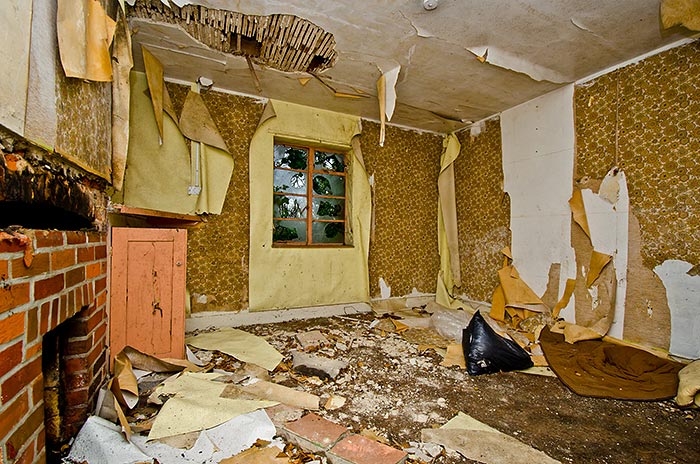Springfield City Council approved a resolution for a 90-day pilot project studying potential action for addressing the City’s chronic nuisance properties.
 “The volume of service requests for dangerous and nuisance properties and the severity of the cases reported, have increased,” the City’s Building Development Services Director Chris Straw explained. Increased awareness about the issue, following a nine-neighborhood Community Listen tour in Springfield’s Zone 1 neighborhoods in 2015, is one of the reasons Straw cited for the increase in reporting.
“The volume of service requests for dangerous and nuisance properties and the severity of the cases reported, have increased,” the City’s Building Development Services Director Chris Straw explained. Increased awareness about the issue, following a nine-neighborhood Community Listen tour in Springfield’s Zone 1 neighborhoods in 2015, is one of the reasons Straw cited for the increase in reporting.
Chronic nuisance properties are defined as those properties in which repeated complaint calls are received and responded to, including from the City’s Building Development Services, Police and Fire Departments, as well as other calls for service. Certain properties in Springfield have had upwards of 70 complaint calls in a single year.
The issue is such that “chronic nuisance properties” rose to the top of the list of concerns in seven of the nine listening sessions and remained a clear “number one” priority throughout a follow-up process with residents participating in Zone Blitz brainstorming sessions.
The “Safe Housing Inspection Pilot Program” will launch in November in the West Central neighborhood. West Central neighborhood leaders vied for the opportunity to participate in the voluntary pilot program.
The West Central neighborhood is generally located between the boundaries of Chestnut Expressway to the north and Grand to the south; South Avenue / Boonville to the east and Kansas Expressway to the west.
The pilot project will consist of a 3-month initiative to study and find better ways to ensure public safety against life-safety-housing issues. The project will consist of visits to homes that will focus on life-safety issues (mostly within the interior living space, but including some exterior life-safety issues). Life-safety complaints can be made on rentals or owner-occupied dwellings, but the complainant must have first-hand knowledge of the life-safety issues. Allowing entry to the home will be voluntary.
“This is a research project that could lead to specific program and enforcement changes being proposed that City Council could consider,” Straw explained. He stressed that any potential solution must be well thought out and balanced with a variety of interests.
Straw is most excited about the opportunity this study provides in bringing multiple organizations together to look at creative ways to address this community challenge. He is hopeful this could lead to proposed enforcement changes down the road.
“The City brought multiple stakeholders to the table,” explained City Manager Greg Burris. “We met with neighborhood leaders and property owner groups such as Greater Springfield Apartment and Housing Association and individuals who own multiple rental homes, as well as residents throughout the city. There are a lot of interests to balance, but I am optimistic that we can work together to find some common ground. The safety of our residents and health of our neighborhoods is a top concern.”
City officials also met with first responders and other organizations providing home-based services, such as City Utilities technicians, home healthcare workers, Parents as Teachers and others, about life safety concerns they are seeing in Springfield homes. They expressed an interest in helping and some considered this a positive alternative for possibly addressing the concerns they say they see on a regular basis.
Those groups will have the ability to report life safety concerns to the City’s Citizen Resource Center.
“These individuals will not search or inspect houses seeking life safety issues; they will only be requested to report life-safety concerns witnessed within the scope of their duties,” Straw explains. BDS staff will follow up on the reported concerns that exhibit life safety issues that place occupants at risk.
Three tiers of life safety violations have been developed.
An additional dimension to this pilot project is an expanded partnership with social service providers and the faith community to develop a protocol for accommodating occupants (renters or owners) who may need to be temporarily relocated due to the most egregious life-safety concerns during the remediation process, but cannot afford alternate accommodations during the remediation time. The City will look to its partner, One Door, to assist with coordination of this work.
For more information, contact Cora Scott, Director of Public Information & Civic Engagement at 417-380-3352 or cscott@springfieldmo.gov.


